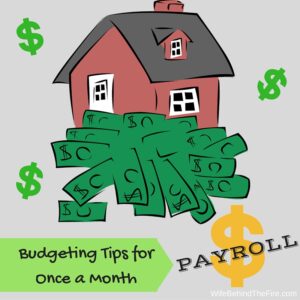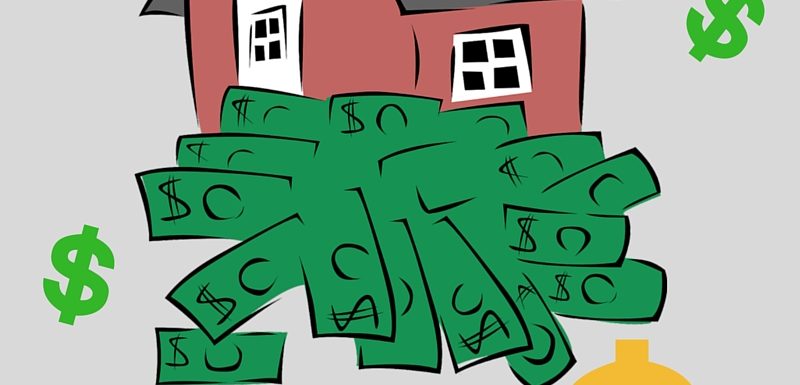 Receiving a paycheck once a month can be very intimidating. What happens when you run out of money before the month is over? Emergencies aren’t planned and can drain your bank account in seconds. There are many different approaches to handling this financial hurdle, but I believe these three simple strategies will help you manage your family’s resources effectively and hopefully help keep financial stressors to a minimum.
Receiving a paycheck once a month can be very intimidating. What happens when you run out of money before the month is over? Emergencies aren’t planned and can drain your bank account in seconds. There are many different approaches to handling this financial hurdle, but I believe these three simple strategies will help you manage your family’s resources effectively and hopefully help keep financial stressors to a minimum.
Pay all of your bills at the beginning of the month when you get paid.
Don’t wait until right before their due date to pay your bills. Make sure you pay them as soon as your paycheck hits your bank account. Nothing is worse than running out of money by the 15th of the month when you have a car insurance installment due on the 23rd. It may also help to call companies who’s due dates are farther out in the month and request a change of date so they all fall closer to your pay date. This will avoid straggling bills that may be forgotten or pushed back to free up money for other purchases. It may also help to have your bills set up on an auto payment schedule so you can rest assured they will always be deducted from your account on time.
Set aside cash for emergencies.
After you pay your bills, pay yourself. Set aside a savings account to add a set amount of money to each month in case of emergencies. You can’t foresee your pet becoming ill, the transmission going out on your car, or your kids all outgrowing their shoes at the same time. If you don’t have extra money set aside for things like this you will find yourself with your hands tied waiting until the next month for your paycheck. If you have money left in your bank account or extra fun money cash left on hand, it would also be smart to bank this money into your saving before receiving your next paycheck as well.
Set up a budget and use cash for your remaining expenses.
Your budget should be based off a regular month’s pay – without overtime. After your bills and savings have been accounted for you should budget the remaining balance should be budgeted for groceries, gas, fun money and any other expenses you would have for the month. I find it’s much easier to limit my spending when I can physically see how much money I have left, so I like to pull cash out and use it for these remaining expenses. Using cash can make it easier to not overspend. If you know you only have a $20 bill left for fun money to spend, you will be less likely to go out for dinner to that expensive restaurant than if that $20 was in the bank account with the remaining $60 for groceries.
There are advantages and disadvantages to getting paid once a month. Yes, you can get all of your bills taken care of all at one time. You can make one big grocery trip for nonperishables and then shop weekly for the produce and dairy items you need. However, you can blow through a lot of money quickly and find yourself high and dry if you don’t stick closely to a budget that works for your family. Not all of these tips will work for every family. Adapt them to fit your needs if they don’t quite work for you.
If you get paid once a month, what are some strategies that help your family make it through the month? Have you ever found yourself in a situation where you had to get creative to make it to the next payday?






Leave a Reply